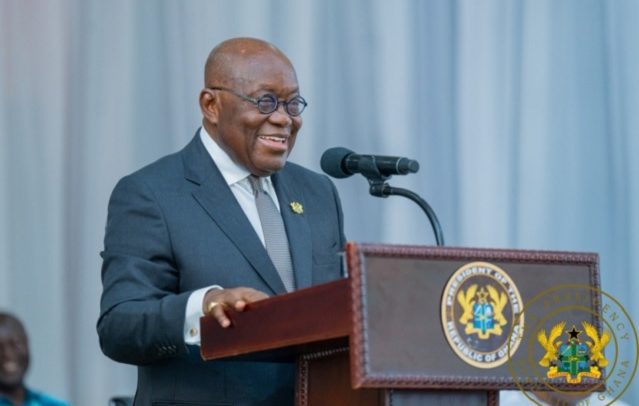Presidents Akufo Addo
Presidents Akufo Addo has charged African leaders to make a neutral assessment of the root factors as well as the benefits that drive migration, in their bid to find effective measures to deal with migration and its attendant issues.
The President, who said this at the opening ceremony of the Kofi Annan Peace and Security Forum (KAPS) in Accra on the theme, “Migration and Societal Resilience in a Multipolar World Order,” said migration policies have often been skewed with a partial view of the problem.
According to him, such perspectives “obscure how the unbalanced nature of globalisation, including prevailing contradictions in the global trading system, curtails the policy choices and options opened to states on the continent.”
That, he said works to close off their developmental prospects and institutional viability to mitigate the challenges associated with development, security and migration.
He also stated that population movements have always been an integral part of the human experience, often providing enormous opportunities that serves as a vital catalyst for development and shared prosperity for both origin and destination states and societies.
He indicated that in spite of the opportunities and the challenges associated with it, migration has become increasingly varied and complex within the ongoing context of globalisation and new technologies of communication.
“The fullest potential and benefits of human migration will remain elusive in the absence of effective international cooperation and greater solidarity. In the emerging multipolar world order, exemplified by the growing influence of BRICS countries, critical questions have emerged regarding human relationships in the context of migration and the structures and institutions which organised them,” he added
The President said that despite the politics that mark current discourses around migration, declining population trends in the advanced industrialised countries are forcing increased demand for foreign workers to enhance the long-term viability of those economies.
“Meanwhile, the demography of African countries, such as Ghana and Nigeria, are largely characterised by the phenomenon of youth bulge, forcing the need for greater job creation and broader opportunities.
The President also called on the leaders to among others, consider what form of global cooperation would enhance the mutual benefits of migration for countries of origin and destination. Under what conditions might population movement transform into threats to security, and what preventive mechanisms exist?
He further asked the leaders to deliberate on how scholarly and policy discourses on migration could be depoliticised and decolonised, and how migration influence societal resilience.
Among some of the prominent leaders that attended the forum include former President of Benin, Yayi Boni; former Prime Minister of Ethiopia Hailemariam Desalegn Boshe; former Vice President of the Gambia, Mrs. Fatoumata Cm Jallow Tambajang; Dr. Mohamed Ibn Chambas, representatives from the Norwegian, German and the Swiss Embassies.
Others include Special Representative of the United Nations, Leonardo Santos Simao; Commissioner, Political Affairs, Peace and Security of the ECOWAS Commission, Ambassador of the European Union (EU) to Ghana, Irchad Razaaly among several notable dignitaries.
The two-day event, which started Wednesday, February 28 and ends today, February, 29, will include plenary sections to discuss issues such as migration, climate change and conflicts in Africa, African leadership and coping mechanisms, building regional capacity to mitigate migration and conflicts in Africa among others.
By Ebenezer K. Amponsah


